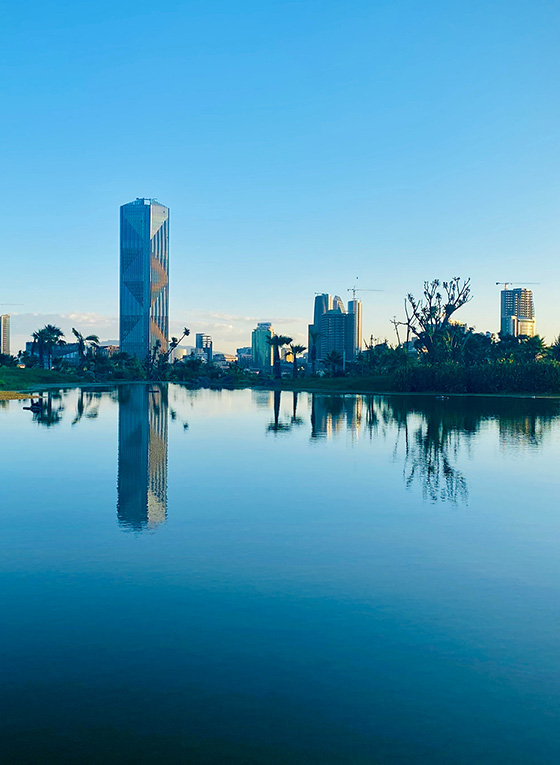Evacuations from High-Risk Locations Call +44 (0)1202 308810 or Contact Us →

Protests Erupt in Addis Ababa over Deadly Ethnic Violence
21 Sep 2018
Thousands of people have taken to the streets of Addis Ababa, the Ethiopian capital, on 17 September, blocking roads and closing businesses to express their anger after a weekend of deadly ethnically motivated violence in the Burayu suburb.
Key Points
- Thousands of people marched in Addis Ababa to denounce the deadly ethnic violence on the outskirts of the capital.
- The Oromo ethnic group was blamed for the attack on ethnic minorities.
- The return of Oromo Liberation Front (OLF) leaders from exile may be a concern.
SITUATIONAL SUMMARY
Thousands of people have taken to the streets of Addis Ababa, the Ethiopian capital, on 17 September, blocking roads and closing businesses to express their anger after a weekend of deadly ethnically motivated violence in the Burayu suburb. The violence in the Burayu suburb was committed by Oromos, Ethiopia’s largest ethnicity, who targeted businesses and homes of ethnic minorities living in the Oromo heartland. According to the Ethiopia News Agency (ENA) the incident was caused by an organised mob, who looted, killed and forced 886 people out of their homes. The attacks and the protests coincide with an unprecedented political opening under its new Prime Minister, Abiy Ahmed. In fact, the president invited many Oromo Liberation Front (OLF) leaders to return to Ethiopia from exile on 15 September.
SOLACE GLOBAL COMMENT
Ethiopia is no stranger to ethnic violence; with over 80 ethnic groups and being one of Africa’s biggest nations in terms of population numbers, conflicts of this kind are common and often spiral into deadly violence. On 9 October 2016, the Ethiopian government declared a six-month state of emergency in response to the escalation of violence in the Oromia region. The Oromo, Ethiopia’s largest ethnic group which makes up a third of the population, have long protested and claimed to be marginalised by governments led by politicians from other smaller ethnic groups.
Oromo-led anti-government protests that began in late 2015 helped bring about the resignation of Ethiopia’s former leader and Abiy Ahmed’s subsequent rise to power on 2 April 2018. Prime Minister Abiy has impressed the international community by supporting unity between the different ethnic groups and criticizing the repressive tactics of his predecessors. In addition to this, the state of emergency was lifted on June 2018, two months earlier than initially planned. Despite this, the relaxation of a once-authoritarian control has been accompanied by an explosion of ethnic tension across this diverse country.
Furthermore, Abiy Ahmed has gained a lot of criticism as citizens are not convinced that, so far, the new policies have had an impact on the intra-state disputes. For this reason, on 17 September, angry protesters took to the streets chanting “We need justice” and “The government says peace, but we are being killed” as they stopped traffic, marched to Meskel Square, and caused disruption. It has been reported that five protesters were killed in the clashes with police forces.
In addition to this, the exiled leadership of the Oromo Liberation Front (OLF), which had previously been declared a terrorist movement by the Ethiopian government, returned home on 14 September, marking another positive step in the political environment of Ethiopia. The OLF has been an insurgent rebel group fighting for Oromo’s self-determination for over three decades but recently signed an agreement with the government to end hostilities. Experts believe that the return of exiled leaders of the once outlawed Oromo Liberation Front (OLF) led to a mass rally of supporters, some of whom violently attacked non-Oromo groups, in particular the Guraghe and Gamo living in Burayu District and will possibly result in more death and forced displacement of non-Oromo communities. While some believe that a new political landscape will offer an opportunity for an improvement of the diplomatic relations within the country, others claim that Ethiopia will be victim of a critical destabilisation. Whether and with what levels of violence the political stability of Ethiopia can be held together are questions that still need answering.
SECURITY ADVICE
Civil UnrestModerateCivil unrest is the most likely threat to personal safety for travellers to Ethiopia. Travellers that are required to travel to Ethiopia should adopt all the reasonable measures to monitor the progress of protests as well as the political stability. It is important to take into consideration that the high presence of weapons in the country means that conflicts developed at public gatherings can escalate to deadly violence. Political rallies have been subject to terrorist attacks. On the 24 June 2018 four people were killed and 44 injured in a grenade attack at a rally attended by the new Prime Minister in Addis Ababa’s Meskel Square. For this reason, travellers should remain vigilant at all times, avoid public gatherings and political demonstrations. Oromia and Amhara have seen the majority of protests as well as violence. According to UN-OCHA, in the last 12 months 1.5 million people have been internally displaced due to conflicts and violence along the Oromia-Somali region, and Gedeo and Guji Oromo. Travellers are advised to avoid these areas and consider contingency measures in case of widespread violence
For most travel to Ethiopia, including the capital Addis Ababa, Solace Global would advise clients to employ the minimum of an airport meet and greet and a locally-vetted driver for all travel in the city. It is advisable that this level of security is increased for other areas of the country or for specific client profiles. Travellers are also advised to use travel-tracking technology with an intelligence feed. This should enable a traveller to be alerted of any security updates within their vicinity and to update others of their movements in case of an emergency.